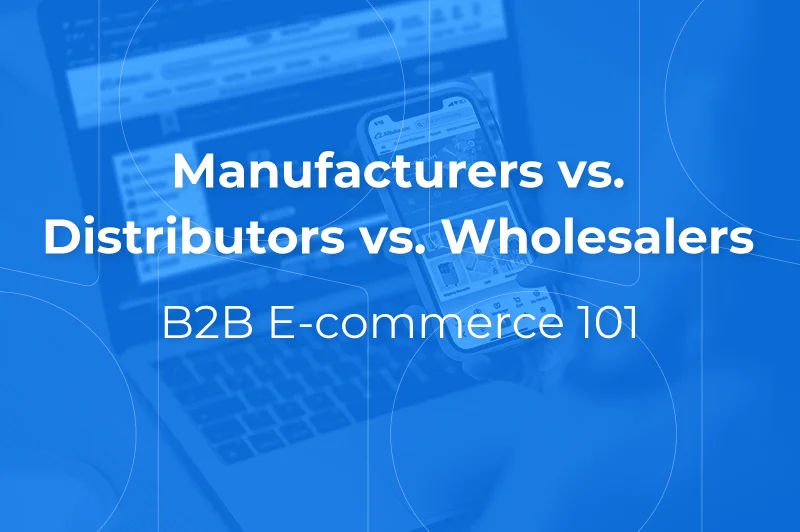In the increasingly fast-changing world economy, manufacturing and wholesale distribution payments are today at the very heart of the well-being of supply chains. From B2B payment tools to supply chain finance, from trade credit insurance to ACH payments, such businesses require safe, scalable, and effective solutions to manage complex financial transactions. This article considers the most influential trends, technologies, and finance instruments driving manufacturing and wholesale distribution payments’ universe.

Understanding Wholesale and Manufacturing Payments
Wholesale distribution payments and manufacturing payments are transactions between companies, often large numbers of B2B payments for procurement, shipping, and product distribution. These are vastly different from consumer transactions in terms of size, terms, and complexity.
B2B Payment Ecosystem
In contrast to retail payments, b2b payment solutions have several stakeholders involved, longer payment terms, and multi-layered commercial payment systems. The solutions employed are electronic funds transfer (EFT), ACH payments, and even old-fashioned ones such as the letter of credit. Contemporary B2B payment platforms simplify such processes and promote transparency.
The Role of Supply Chain Finance

Supply chain finance has become an essential means of covering the gap between buyers and suppliers. With the help of tools such as accounts receivable financing, invoice factoring, and dynamic discounting, businesses can enhance cash flow management for manufacturing and preserve continuity in operations.
- Accounts receivable financing enables companies to borrow against invoices that are outstanding.
- Invoice factoring is the sale of invoices to a third party at a discount.
- Dynamic discounting is an early payment to suppliers in lieu of a discount.
These offerings are usually backed by supply chain financing firms that have the expertise to maximize working capital.
Trade Finance Instruments
International trade needs the services of specially designed financial tools called trade finance instruments. These include:
- Letter of credit: Guarantees payment to the seller when delivered.
- Trade credit financing: Enables buyers to buy goods and pay afterwards.
- Trade credit insurance: Safeguards suppliers against non-payment by buyers. These services are the backbone of trade finance services and are necessary for cross-border transactions.
Managing Payment Terms
Manufacturing payment terms and wholesale payment terms negotiation and management are vital. This involves establishing payment timeline expectations, discounts, and penalties. Successful payment terms negotiation can enhance supplier relationships and liquidity. Wholesale credit terms and trade credit accounts give buyers flexibility but need to be managed carefully to prevent payment defaults.
Technology-Driven Payment Solutions

Contemporary businesses use digital means to process intricate transactions with precision and speed. Some of the most influential technologies are:
- Electronic payment systems in manufacturing: These automate financial processes, minimizing human errors.
- Electronic invoicing (e-invoicing): Speeds up invoice transmission and payment.
- Accounts payable automation: Automates invoice approvals and payment processing.
- Supply chain payment automation: Aligns finance with supply chain activities for real-time visibility.
- Wholesale invoicing software: Supports creation, distribution, and reconciliation of invoices for volume transactions. Such systems are frequently built into B2B payment processor companies with specialized solutions for industry requirements.
Wholesale and Manufacturing Financing Options
Manufacturing financing options and wholesale distribution finance assist companies in securing funds for operations, machinery, and raw materials. Options include:
- Manufacturing vendor financing: Vendors provide credit or loans to buyers to finance purchases.
- Manufacturing procurement payments: Dedicated platforms handle procurement and supplier payments efficiently.
- Manufacturing cost analysis: Financial planning and analysis help identify cost-saving opportunities. By adopting appropriate financing mechanisms, manufacturers and wholesalers can scale operations while managing risk.
B2B E-commerce and Cross-Border Payments
The advent of B2B e-commerce payment has transformed the way goods are purchased and sold between enterprises. Platforms now implement B2B payment gateways to handle high-value payments in a secure environment. With global trade growing, B2B cross-border payments have become even more vital with the need for strong systems managing currency exchange, compliance, and speed. Payment solutions in the supply chain have to facilitate multiple currencies and regional compliance rules for smooth global transactions.
Vendor Payment and Supplier Relationships
Solid supplier relations lie at the roots of good functioning. B2B payment options enable timely pay to suppliers, liability monitoring, and contract control. Seamless wholesale supplier settlements give way to continuing supply as well as create faith. Transparency and on-time payments play essential roles in ensuring the diminution of payment dangers in supply lines, such as delayed shipment or production standstill due to payments problems.
Real-time B2B Payment Trends
Contemporary trends in B2B payments focus on automation, digitalization, and data-driven decision-making. Companies are investing in:
- AI-powered fraud detection.
- Blockchain for secure payment tracking.
- Instant and real-time payment systems.
- Embedded finance in supply chain platforms.
These developments respond to the increasing need for efficiency, security, and speed in wholesale trade credit and manufacturing transactions.
Selecting the Right Payment Processing Partner
The right wholesale payment processing partner has to be selected. Take into account the following:
- Integration with current ERP systems.
- Support for accounts payable automation and e-invoicing.
- Cross-border payment reach globally.
- Cash flow management through real-time analytics.
Leading B2B payments processing organizations provide both manufacturing and wholesale distribution with tailored solutions for scalability and compliance.
Conclusion
Effective factory and wholesale distribution payments are essential for business profitability in the modern global market. With an optimal combination of B2B payment solutions, supply chain finance, and electronic payment options, businesses can automate processes, enhance vendor relationships, and fortify financial well-being. By mastering essential concepts such as trade credit finance, dynamic discounting, and electronic invoicing, businesses can achieve new heights of efficiency and profitability. Whether you’re navigating manufacturing procurement payments, negotiating wholesale credit terms, or adopting supply chain payment automation, aligning your payment strategy with business goals is essential for long-term growth.
FAQs
What are wholesale and manufacturing payments?
These are B2B financial transactions between suppliers, manufacturers, and distributors involving large volumes, extended payment terms, and specialized payment practices.
What are the most common B2B payment methods?
Common practices are ACH payments, electronic funds transfer (EFT), checks, letters of credit, and B2B payment platform payments.
How do businesses benefit from supply chain finance?
It improves cash flows, provides flexible funding, and enhances supplier relationships by allowing early payment and lower working capital burden.
What is the distinction between invoice factoring and accounts receivable financing?
Invoice factoring is selling invoices to a third party for discount, whereas accounts receivable financing leverages invoices as security for borrowing.
How do companies automate payment operations?
By adopting electronic invoicing, accounts payable automation, and B2B integrated payment solutions, companies can eliminate manual errors and accelerate processing time.
What are the dangers in supply chain payments?
The dangers involve delays in payment, defaults, exchange rate fluctuations, and compliance issues, particularly in cross-border payments.
Why is vendor financing and dynamic discounting significant?
They provide both suppliers and buyers with liquidity, minimize financing cost, and impart flexibility.
How does the trend of B2B payments affect manufacturers and wholesalers?
Trends such as real-time payments, blockchain, and embedded finance enhance speed of transaction, security, and transparency, thus keeping businesses in line with their competitiveness.
What do businesses need from a wholesale payment processing partner?
They need ERP integration, global support, automation tools, security, and compliance assistance.
Do digital solutions have the potential to enhance manufacturing procurement payments?
Yes, digital solutions simplify procurement, provide timely payments, and provide real-time visibility into the status of payments.
